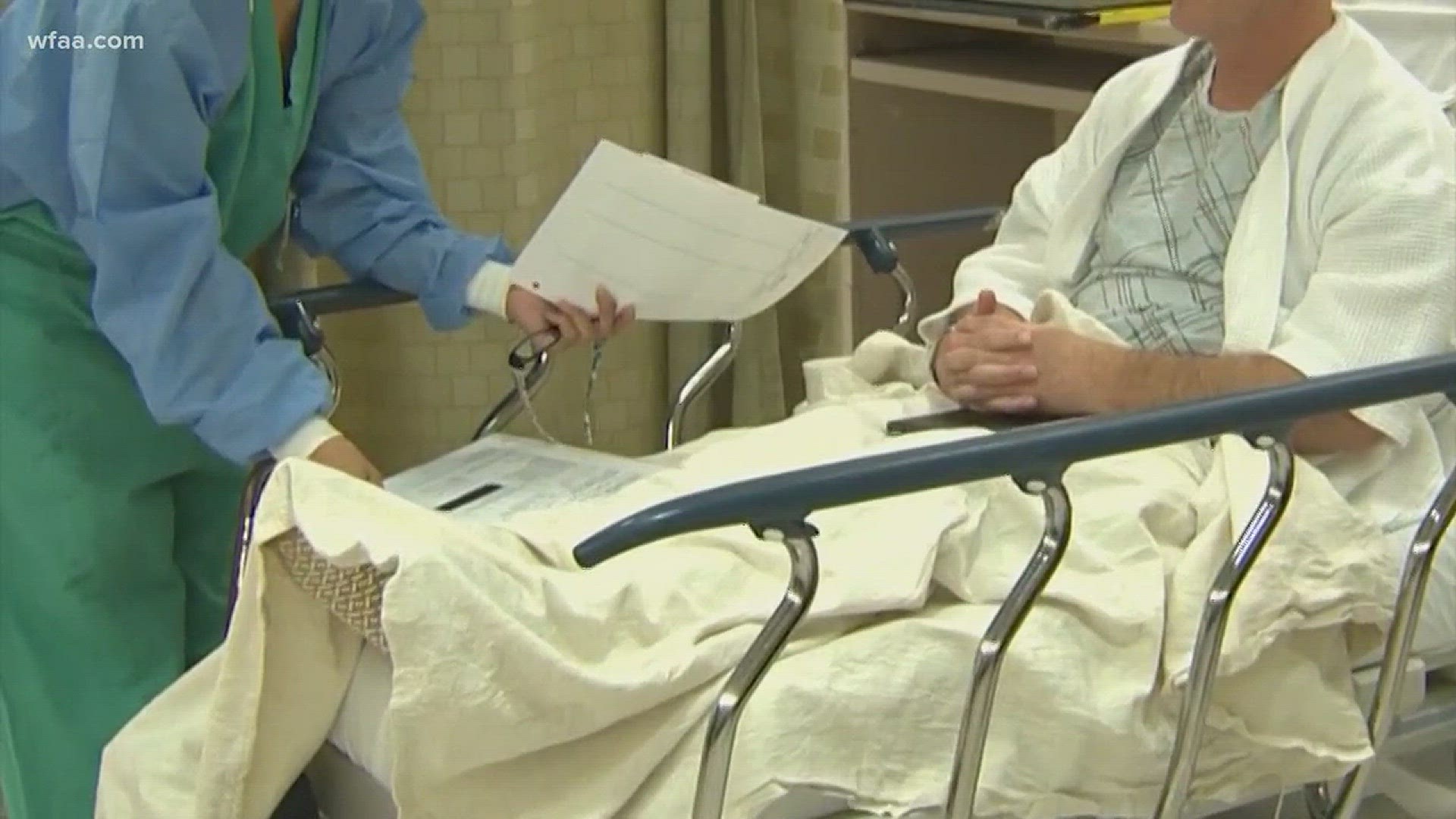Several North Texas hospitals are acknowledging a shortage in powerful pain medications.
It is a nationwide shortage, believed to be caused in large part by a move the Drug Enforcement Administration made to combat opioid abuse.
According to W. Stephen Love, President and CEO of the Dallas-Fort Worth Hospital Council, in 2017 the DEA lowered the limits regulating how much of these drugs pharmaceutical manufacturers can produce.
“They were doing that to be part of a solution,” Love explained. “The DEA recognized that all of us have to be working on this opioid crisis.”
The result is a change in the way patients like Gilbert Cavello are treated.
His pain has eased now, but two weeks ago, “It was excruciating. I’d say it was about an 8 [out of 10], when they were asking me at the hospital.”
Cavello is paralyzed from the chest down and is prone to bladder infections. He says the last infection was terrible, and his treatment was different.
“Usually, they automatically start me on antibiotic and then, to ease pain, they put me on Dilaudid, but this time they put me on morphine and it wouldn’t help, it wouldn’t last,” he said.
Gilbert was a patient at UT Southwestern Medical Center, one of the North Texas hospitals experiencing the shortage. Particularly drugs such as Dilaudid, fentanyl and morphine are in short supply.
Love says doctors he’s spoken with are working closely with pharmacists, clinical staff and nurses to coordinate pain management. Parkland Hospital, UT Southwestern and Methodist Health System say staff are transitioning patients to oral medication when appropriate, as pills are more readily available than those that are intravenously delivered.
Love said he believes hospitals are also being more candid with patients.
“Probably, in some ways, the pendulum may have swung too far as far as trying to keep the patient experience extremely pain free,” Love said. “We want it to be pain-free but in the same token we want it to be done in a very responsible way.”
Love says the shortage could potentially ease if the DEA adjusts the production limits.
But, changing patients’ expectations could take time.
“People need it, especially those in severe pain like me,” Cavello said.

